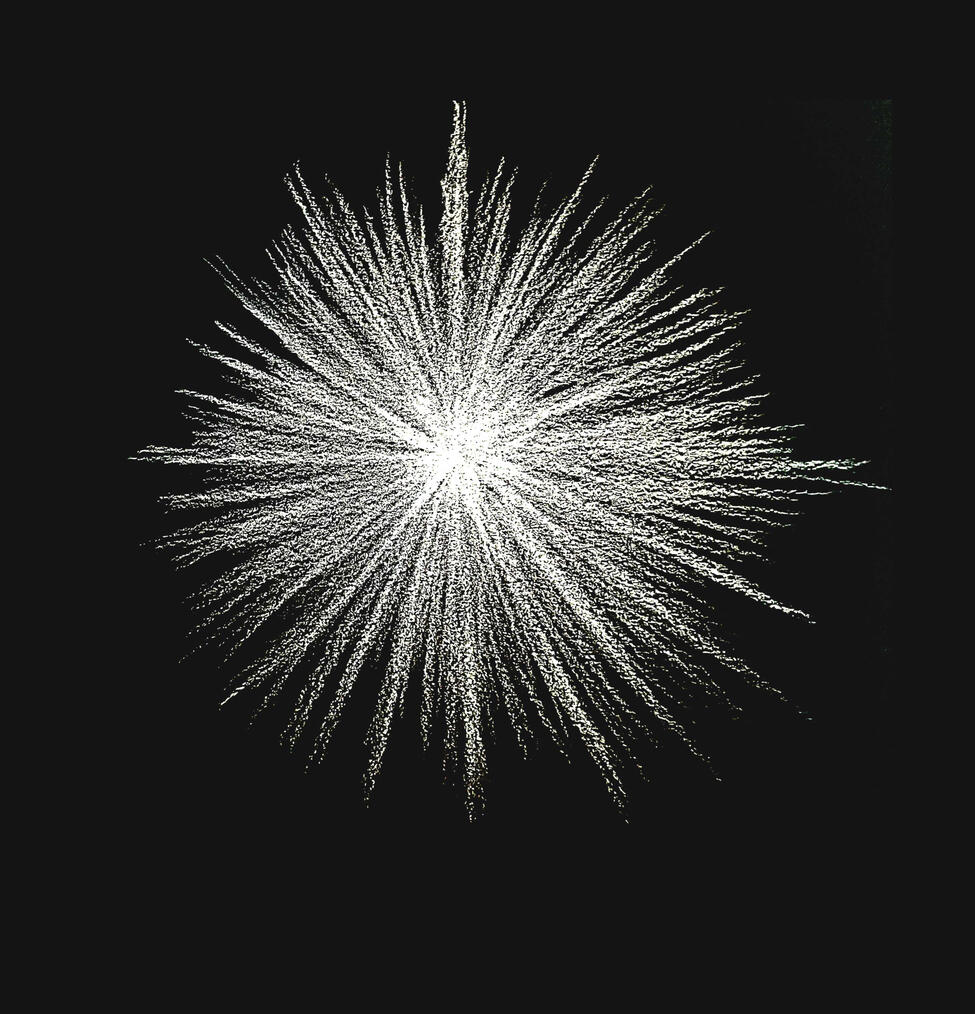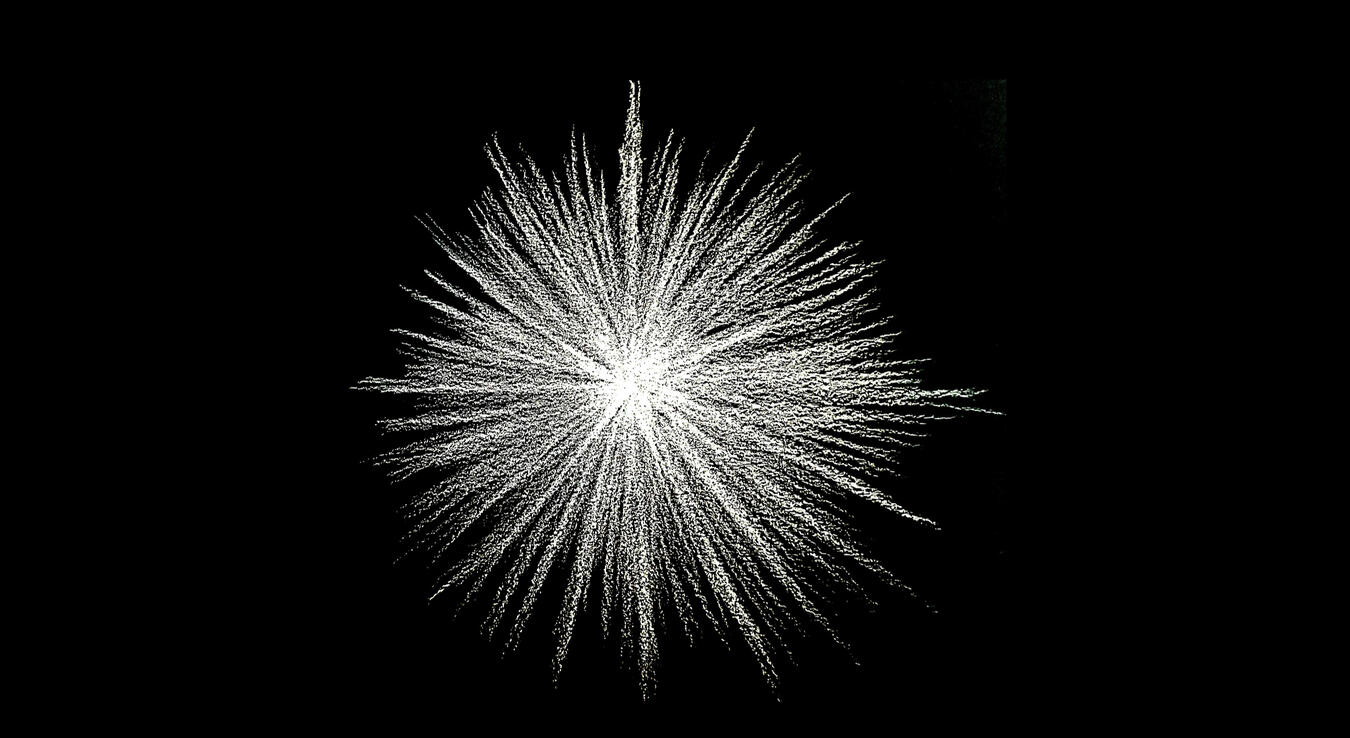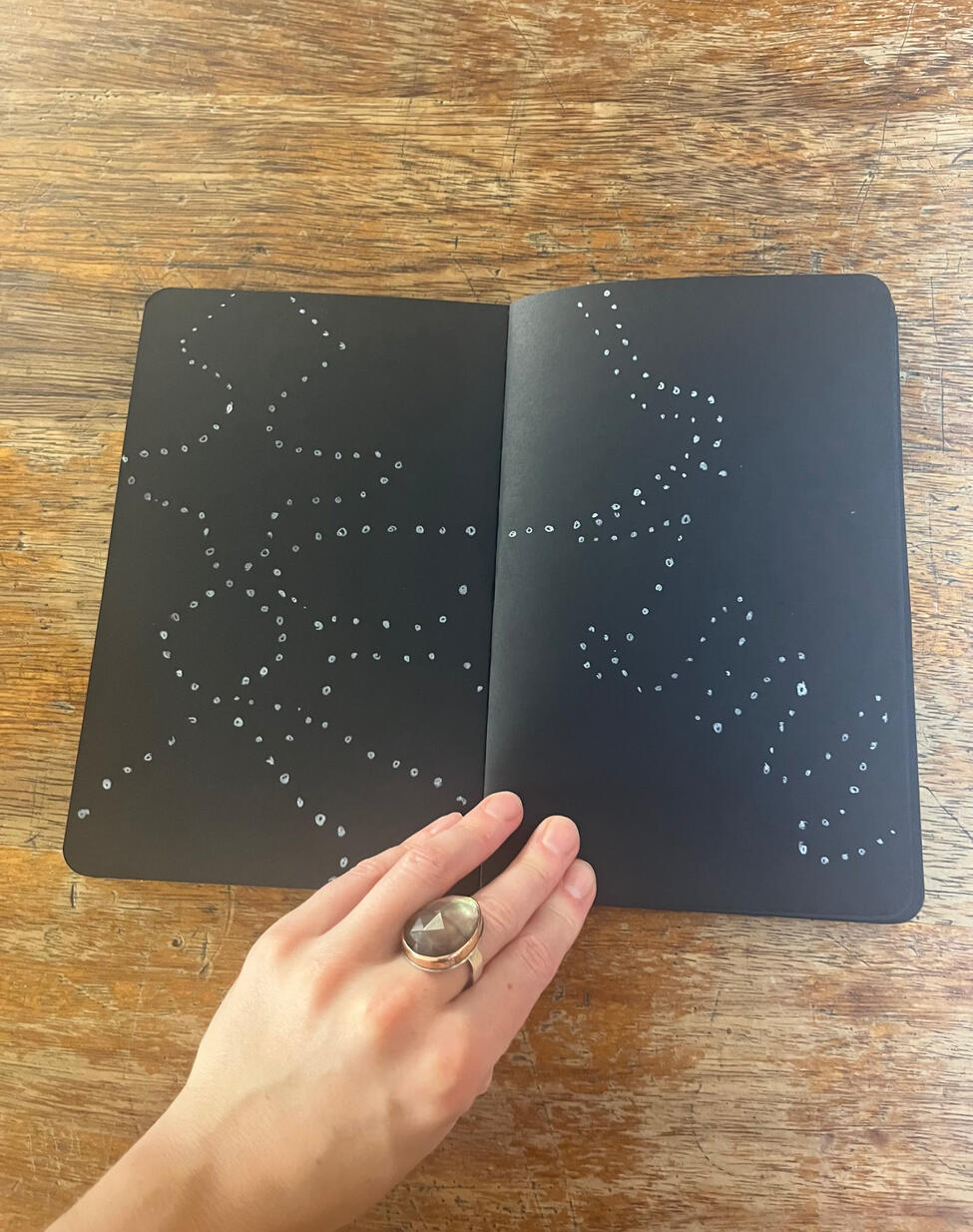Wayfinding in Times of Dynamic Complexity:
Invitation to Engage in a Participatory Study
Postgraduate study by Elsa Henderson, University of the West of England

Image Caption: "Initial Spark"
Are you interested in contributing to new knowledge and exploring your experience as an organisational practitioner?You may be curious about the tacit layers of your experience and understand more about how you respond when faced with challenges rooted in ambiguity, paradox, and uncertainty.By engaging in an action research project rooted in participatory methods, you'll have the opportunity to learn alongside other practitioners and contribute to the larger field of practice.The inquiry of the study is to consider the experiences, practices and capabilities that support organisational practitioners in finding their way through dynamic complexity.Dynamic complexity manifests through situations infused with ambiguity, paradox, conflicting values, and uncertainty. Often, we may experience situations of dynamic complexity as puzzling or perplexing.The study is rooted in a phenomenological approach, which ‘aims at gaining a deeper understanding of the nature or meaning of our everyday experiences (Van Manen, 2016, p. 9). It differs from other sciences and research approaches, in that it tries ‘to gain insightful descriptions of the way we experience the world pre-reflectively, without taxonomizing, clarifying, or abstracting it’ (ibid). In other words, phenomenology is interested in gaining insights that increase our awareness and bring us into more direct contact with the world (ibid).My approach:
As the primary researcher I take an appreciative stance, which values the insights participants bring, inquires into their lived experience and engages with them collaboratively. Taking inspiration from Cooperative Inquiry as described by Reason (1999) each participant will be viewed as a co-researcher.
Eligibility: Who is it for?
For this research, participants:
• Are organisational practitioners: consultants, facilitators, managers, coaches, coordinators, or social entrepreneurs.
• Have a lived experience of engaging in a bewildering situation, navigating complexity or are interested in developing the capabilities to do so.
• Have been in the role of a coordinator, facilitator, consultant, manager, or similar role for approximately five years.Additionally, their work may include the following criteria:
• It asks for their full attention.
• Invites, and sometimes requires, them to draw upon resources within or around them that they can’t always describe or quantify.
• Requires that they work at the edge of what they know.
• Has a performative element; they must show up and deliver something or perform a series of actions for others.
• Requires them to make decisions with incomplete information and live with uncertainty and doubt while appearing coherent to those they’re serving, their clients, or their team.
• Sometimes they follow intuitive hunches and go against the status quo in how they make decisions.
Participation: What does it involve?
The study has two streams: semi-structured interviews and cooperative inquiry sessions.
Over four months, participants will have the opportunity to participate in two semi-structured interviews and participate in 3 cooperative inquiry sessions: a group format to learn and reflect together to gain insight and contribute to practice.Semi-Structured Interviews
Interviews will be an hour long and recorded on Microsoft Teams. The intention will be to learn about your lived experience of complex and bewildering situations.We may explore questions such as:
• How do you cope with complex situations?
• What do you draw upon in moments of ambiguity, paradox, and conflicting values?
• How did you find your way through a bewildering situation?Cooperative Inquiry Sessions
Cooperative inquiry, is a form of action research that supports learning and aims to create practical knowledge from practitioners experience.One of the core intentions of cooperative inquiry is to research 'with people rather than on them. The sessions will consist of up to 8 participants, who will also be in the role of co-researchers.The cooperative inquiry sessions will happen over the course of 4 months and be 2.5 hours long including breaks.

If you'd like to join the study or learn more, please fill out the form below.
